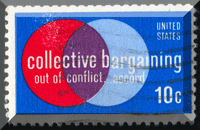Part I: PoolRe Introduction and Background
Introduction
 Arbitration offers rough justice on the merits. Arbitrators have broad discretion not only in deciding the dispute but in fashioning remedies. Skilled, experienced and responsible arbitrators can cut through all sorts of legal and contractual “red tape” to resolve a dispute, applying just enough gloss on the law and the contract to make things work in a businesslike fashion while remaining true to the “essence of the agreement.” Applied just so, that kind of rough justice is sometimes exactly what the parties need to make their agreement work, and in some cases, preserve (or even improve) their commercial relationship going forward. And it is not something that Court adjudication necessarily—or even ordinarily—can achieve.
Arbitration offers rough justice on the merits. Arbitrators have broad discretion not only in deciding the dispute but in fashioning remedies. Skilled, experienced and responsible arbitrators can cut through all sorts of legal and contractual “red tape” to resolve a dispute, applying just enough gloss on the law and the contract to make things work in a businesslike fashion while remaining true to the “essence of the agreement.” Applied just so, that kind of rough justice is sometimes exactly what the parties need to make their agreement work, and in some cases, preserve (or even improve) their commercial relationship going forward. And it is not something that Court adjudication necessarily—or even ordinarily—can achieve.
But rough justice does not govern whether the parties agreed to arbitrate, who’s bound by an arbitration agreement and whether the parties agreed to delegate authority to a particular arbitrator or to follow a particular method of arbitrator selection as set forth in the parties’ agreement. Those questions are governed principally by state contract law and—particularly when multiple agreements and multiple parties are involved, or the question concerns whether an arbitrator was validly appointed—they frequently must be decided by courts, even if some or all of the parties have clearly and unmistakably agreed to submit arbitrability questions to arbitration.
Details, Details. . .

Details always matter, but they are all the more important when a dispute will presumably be decided under state contract law rules and principles by a decision maker whose decisions—unlike those of an arbitrator—are often subject to independent review by an appellate court. Courts generally do not (or at least are not supposed to) substitute rough justice, pragmatism or equity in place of contract law, which is not always so flexible. The casebooks are littered with examples where doing so might arguably have achieved a more desirable outcome but doing so could not be squared with contract rules and principals in a way that befitted higher-court precedent and the circumstances apparently did not warrant departure from precedent.
The U.S. Court of Appeals for the Fifth Circuit’s decision in PoolRe Ins. Corp. v. Organizational Strategies, Inc., No. 14-20433, slip op. (5th Cir. April 7, 2015), is a case where the parties apparently lost sight of some important details in their apparent haste to do a deal that unfortunately went sour. Then, an arbitrator appointed under one of the contracts compounded the problem by making an award that could not even arguably be squared with the clear terms of one of the contracts’ arbitration agreements.

The parties that were probably best positioned to ensure that the arbitration agreements in the various service-provider and reinsurance contracts probably lost the most, and perhaps to some extent at least, there’s some poetic justice to that. They claimed the clients breached their service contracts, the clients said the service providers breached the contracts and independent legal duties and the arbitrator ruled in favor of the service providers. The district court, as we’ll see, properly vacated the award and the Fifth Circuit affirmed. Now the parties are essentially back at square one, albeit much worse for the wear in terms of legal expenses and protracted delay.
The facts and procedural history of the case is somewhat complex, but critically important. Not only do they drive the outcome but they read like a primer on what not to do when attempting to devise a cost-effective arbitration program for disputes that may involve multiple parties and interrelated and interdependent contracts. And they demonstrate pretty starkly some of the consequences that parties can suffer when: (a) they do not properly structure their agreement; and (b) end up with an arbitrator who is not be as savvy as he or she might otherwise be about scope of authority (or simply makes a bad call about it).
We do not mean to suggest that the Arbitrator in this case was in any way incompetent or otherwise blameworthy. To err is human, and even if the arbitrator had made the best permissible decision possible under the circumstances, the parties would still be exposed to the consequences of having not properly structured their arbitration agreements. The arbitrator’s missteps certainly exacerbated the problem, but such things are foreseeable risks that the parties could have managed by, for example, agreeing to an arbitration agreement that was drafted in simple, unambiguous terms governing what is supposed to happen in the event of a multi-contract, multi-party dispute like the one at issue. Such disputes were foreseeable, as they are in any relatively complex transaction involving multiple parties and multiple interrelated contracts.

The mess that is described in the balance of this post could have been avoided had some or all of the parties: (a) understood that their dispute resolution system needed the attention of a skilled and experienced arbitration lawyer; and (b) were willing to invest the modest sum needed to make that possible. Apparently the parties did not appreciate the risks they faced or, if they did, they made a conscious decision to ignore them, perhaps finding it preferable to avoid paying a few extra thousand dollars up front, roll the dice and hope that all would turn out well (and certainly not as it did).
Perhaps one might wonder what the odds were that an underlying dispute like the one at issue would arise. Nobody knows the precise answer, of course, but we’d have to say there was a meaningful risk in view of the nature and structure of the transaction. And given the rather obvious and dramatic disparity between the two arbitration agreements, the risk that Federal Arbitration Act enforcement proceedings would be necessary was likewise meaningful and fairly easy to foresee.
 Suppose the risk was 1 in 6—that is, there was approximately a 17% chance that the parties would spend hundreds of thousands of dollars and spend at least an additional year or more embroiled in Federal Arbitration Act enforcement litigation centered on issues collateral to the merits. If we’re talking about a single round roll of a single die, with the idea being to avoid one possible outcome (represented by a whole number ranging from one to six), then that’s about as minimal a risk as could be measured (since there are only six possible outcomes). It also happens to be the same risk one would accept were one to play a round of Russian Roulette with a six-round revolver and a single bullet.
Suppose the risk was 1 in 6—that is, there was approximately a 17% chance that the parties would spend hundreds of thousands of dollars and spend at least an additional year or more embroiled in Federal Arbitration Act enforcement litigation centered on issues collateral to the merits. If we’re talking about a single round roll of a single die, with the idea being to avoid one possible outcome (represented by a whole number ranging from one to six), then that’s about as minimal a risk as could be measured (since there are only six possible outcomes). It also happens to be the same risk one would accept were one to play a round of Russian Roulette with a six-round revolver and a single bullet.
The point is that it is not just a matter of assessing the odds; severity of potential outcomes obviously drives risk assessment and management decisions as well. Most responsible corporate officers and directors aren’t going to take on a Russian-Roulette type risk (i.e., a “bet-the-company” risk) unless they have no choice, and if they must take the risk, they do what they reasonably can to minimize the odds the undesirable outcome will materialize and to mitigate any loss incurred if it does.
 Here, the outcome that could have been avoided was very costly—though presumably not a death knell for either party— whereas the cost of substantially decreasing the likelihood of that outcome would probably have been less than a percentage point of the loss.
Here, the outcome that could have been avoided was very costly—though presumably not a death knell for either party— whereas the cost of substantially decreasing the likelihood of that outcome would probably have been less than a percentage point of the loss.
What would you have done?
Continue Reading »






















